Involvement with SDGs
Selected Seven Focus Goals to Promote
The RYODEN Group seeks to contribute to the achievement of a sustainable society through environment, security and safety, so we do not exaggerate when we say that our SDGs-driven initiatives underpin the very foundation of our business activities. The RYODEN Group has selected seven goals to focus on most earnestly and we are currently working to solve various social issues in ways that intimately link those goals and our business activities.
Our Approach to the SDGs
The SDGs clarify specific social issues, and, as such, they indicate the exact areas that we should be focusing on in our entire Group business activities or the direction we should be taking. The RYODEN Group’s Management Philosophy and Guidelines for Action agenda often coincide with the SDGs. We would even say that the activities designed to solve issues under the SDGs framework are often the very business activities that we are also striving to attain. We consider the SDGs to be an important factor in the sustainable development of our business activities, so we constantly strive to deepen the relationship between our business activities and the SDGs in order to help solve social issues.
Framework for Promoting SDGs
We have established an SDG working group to ensure that our commitment to the SDGs is reflected in the Group's strategy and management, and that we strike a balance between social and economic values. The working group is chaired by the Environment and Quality Director of the Board and includes representatives from each business division. Under the guidance and oversight of the Sustainability Committee, the working group promotes activities in collaboration with the Executive Committee.
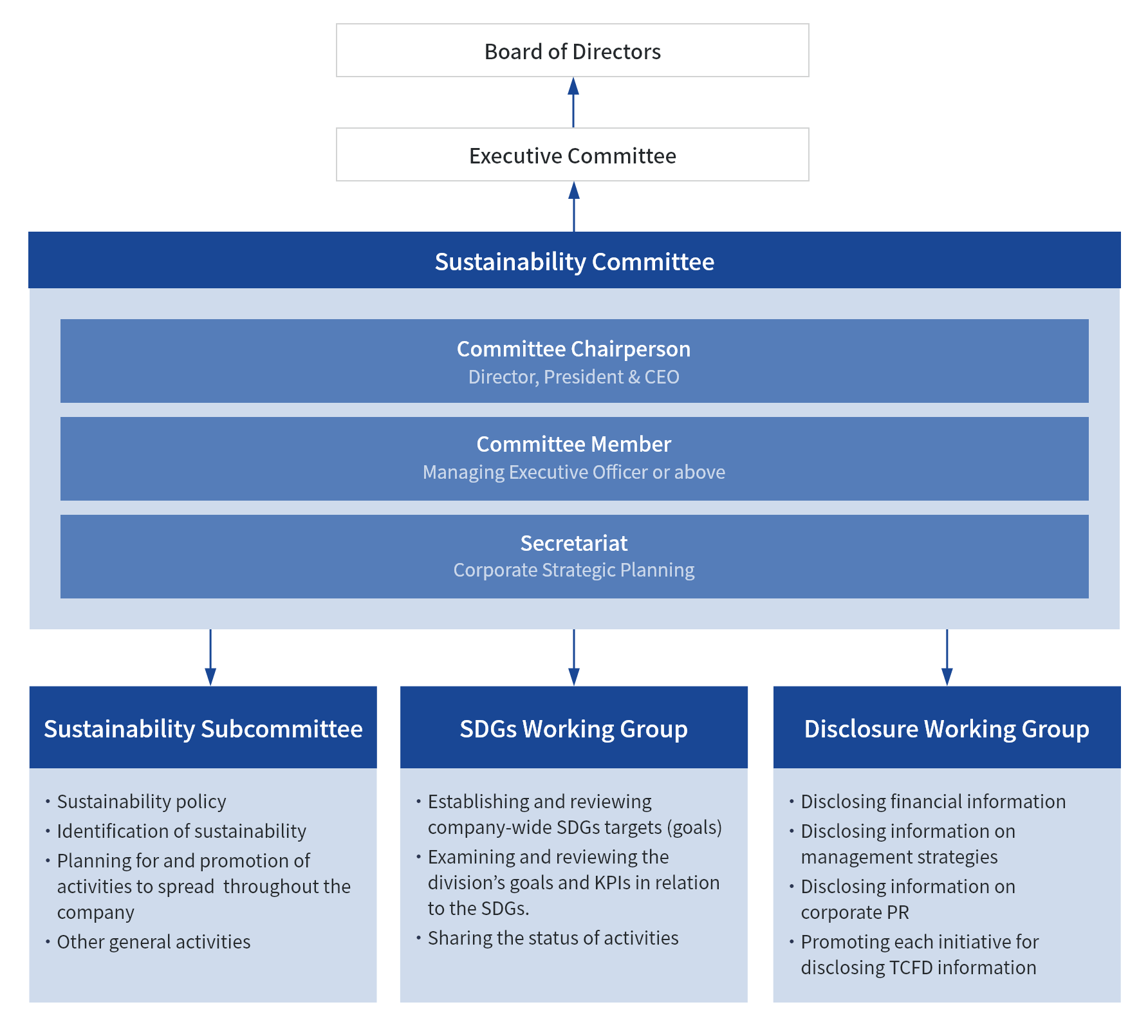
Selecting Important SDGs for our Business Activities
In order to further clarify our response to solving social issues, we selected seven SDGs that are the most important and relevant to RYODEN Group business activities. We considered a comprehensive range of factors when selecting those goals, including the degree of importance in relation to our business activities, the focus areas of our medium-term management plan, and the perspectives of various stakeholders.
| STEP 1 | Each business division examined the relevance of the SDGs to their business activities, and selected priority SDGs. |
|---|---|
| STEP 2 | Our medium-term management plan focuses on the environment, security, and safety, so we compared and confirmed the SDGs included as specific examples of these focus areas and the selected priority SDGs. |
| STEP 3 | We selected the SDGs that could be applied across our different businesses and were the most important to our business, and the most relevant from the perspective of social issues and our stakeholders. |
| STEP 4 | In addition to our focus areas, we have added Smart Agriculture Business (and other agricultural businesses), in which we have been working hard uniquely as a company to add value, to the goals as one of the important SDGs in our special businesses. |
Selected SDGs
All seven of the SDGs that we selected are highly important issues both to society and to our Group business activities. We believe that aiming to achieve these goals will enable us to better help realize a sustainable society and achieve further growth as a company.
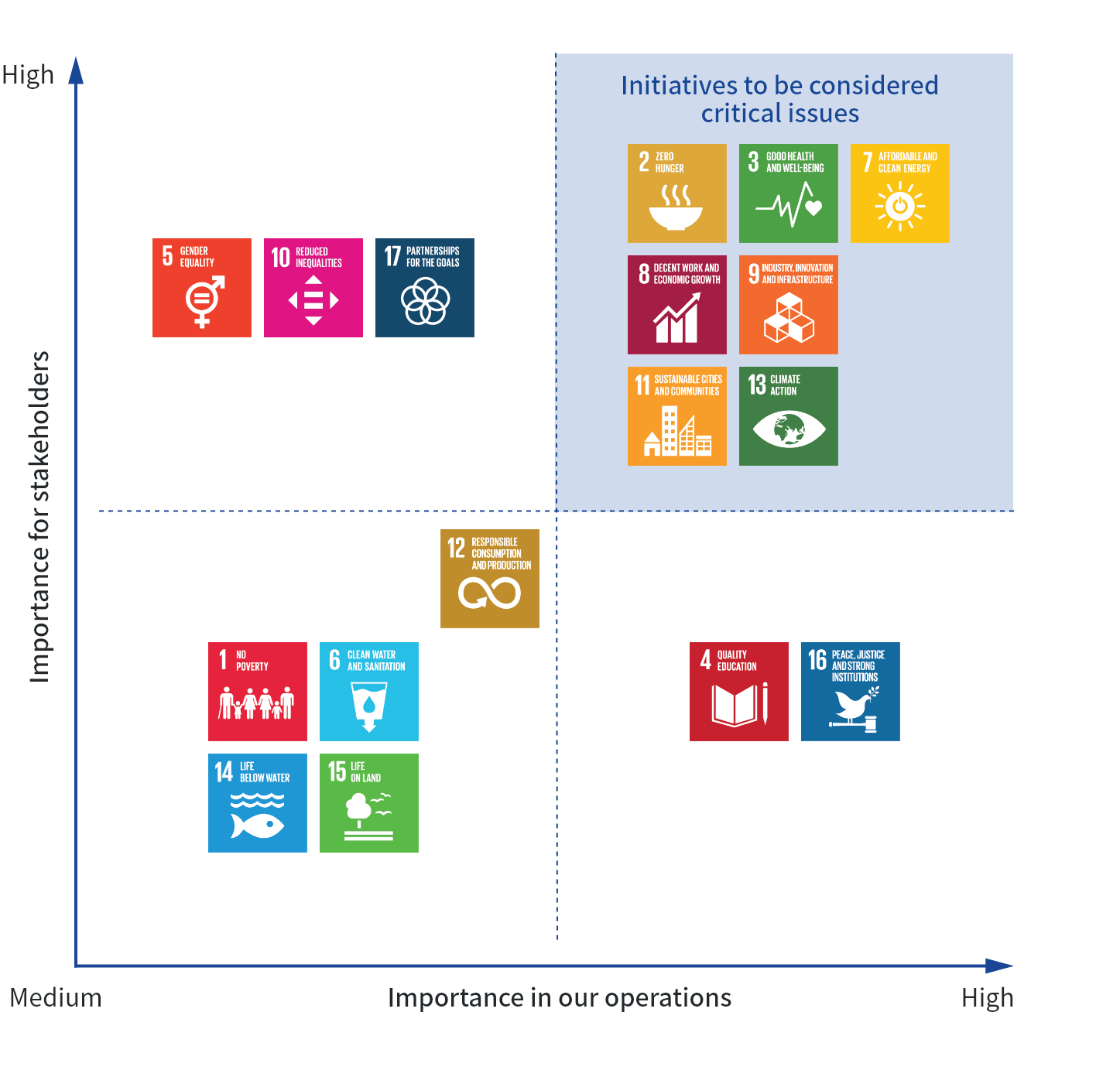
| Importance in our operations | Initiative |
|---|---|
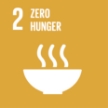
ZERO HUNGER |
Developing sustainable food production systems |
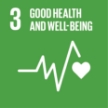
GOOD HEALTH AND WELL-BEING |
Developing high-wuality health services,reducing traffic accidents |
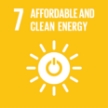
AFFORDABLE AND CLEAN ENERGY |
Optimal energy use |
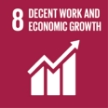
DECENT WORK AND ECONOMIC GROWTH |
Promoting innovative working environments |
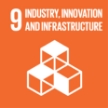
INDUSTRY INNOVATION AND INFRASTRUCTURE |
Promoting innovative infrastructure building |
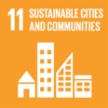
SUSTAINABLE CITIES AND COMMUNITIES |
Building sustainable,safe and secure cities |
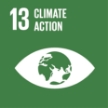
CLIMATE ACTION |
Responding to climate change |
Relationship between business activities and the SDGs
We have selected key initiatives from each of our business activities that contribute to solving social problems.
It is our hope that promoting these activities will help to make the world a better place.
| Business division | Issues identified from opportunities/risks | Priority SDG targets | Main initiatives |
|---|---|---|---|
|
|
|
|
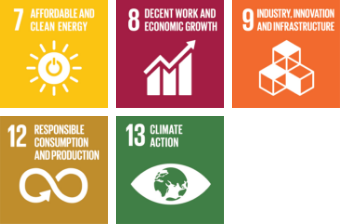
|
|
|
|
|
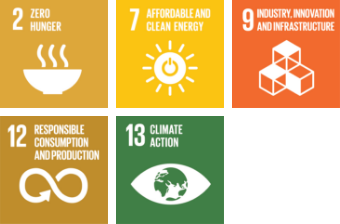
|
|
|
|
|
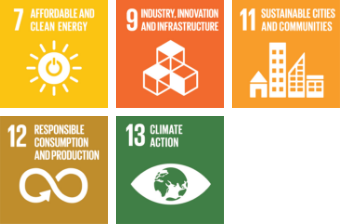
|
|
Systems |
|
|
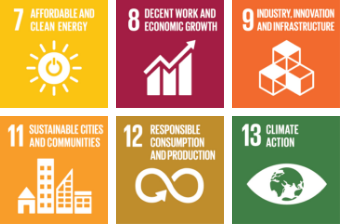
|
|
|
|
|
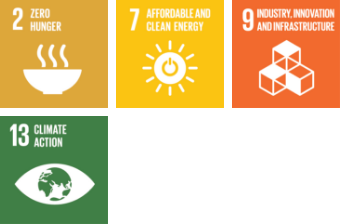
|
|
|
|
|

|
|
|
|
|
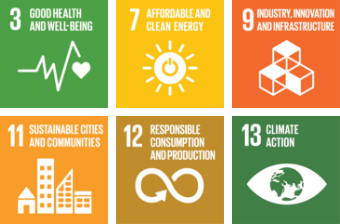
|
Addressing critical risk mitigation issues
The company's efforts to address environmental, social, and governance risks that could impede business continuity are considered in terms of both importance to stakeholders and importance in our operations, and issues identified as important are designated as critical issues.
| Items identified as critical issues | Initiative | Relevant SDGs |
|---|---|---|
| Environment |
Countermeasures against global warming
|

|
Initiatives to create a circular society
|

|
|
| Responding to biodiversity |

|
|
| Social | Promoting diversity |

|
| Human resources development initiatives |

|
|
| Work-style reform |

|
|
| Initiatives to improve quality, etc. |

|
|
| Governance | Development of corporate governance |

|
| Response to risk management |

|
|
| Continuing compliance |

|
Targets (KPIs) to Address Critical Issues and FYE2023 Results
We have categorized our risk mitigation efforts under the headings of Environment (E), Society (S), and Governance (G), and identified those issues that we consider important in our operations as critical issues.
We have set targets (KPIs) for initiatives and are driving action on these crucial issues.
| Critical | Main Themes | Initiative | Target | FYE2023 results | Relevant SDGs |
|---|---|---|---|---|---|
|
Summary
|
Strengthen the management system for sustainability management |
|
- Follow up on the progress made in sustainability activities by holding meetings of the Sustainability Committee on a regular basis (1) Operation of subcommittees (2) Response to TCFD |
|
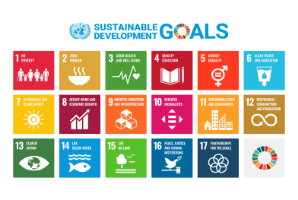
|
|
Environment(E)
|
Countermeasures against global warming | ||||
| Reducing greenhouse gas emissions from our offices (Activities to achieve the environmental vision) |
|
|
|

|
|
| Reducing greenhouse gas emissions from our company vehicles |
|
|
|

|
|
| Initiatives to create a circular society | |||||
| Conservation of forest resources |
|
|
|

|
|
| Reducing waste |
|
|
|

|
|
| Responding to biodiversity Social contribution activities that take biodiversity into account |
|
|
|

|
|
|
Society(S)
|
Promoting diversity |
|
|
|

|
| Human resources development initiatives |
|
|
|

|
|
| Work-style reform |
|
|
|

|
|
| Initiatives to improve quality, etc Support for strengthening technical capacity for sustainable consumption and production |
|
|
|

|
|
|
Governance(G)
|
Development of corporate governance |
|
|
|

|
| Response to risk management |
|
|
|

|
|
| Continuing compliance |
|
|
|

|
|
Internal communication
Communication is being promoted at each stage in order to permeate the SDGs activities.
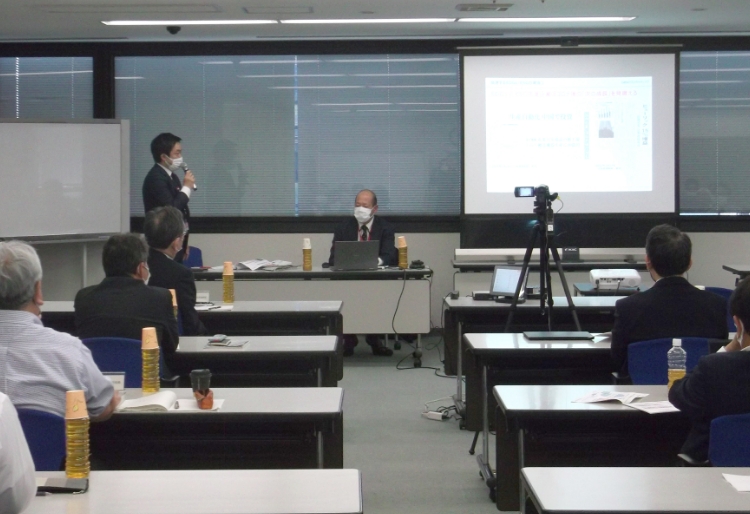
SDGs Management Seminar
(March 2021)
We held seminars for upper management (company directors and executives) presented by external experts and centered on the themes of “Overview of SDGs,” “SDGs Management,” and “The Mindset for Sustainable Initiatives.”
Participants exchanged opinions on the content and deepened their understanding of the relationship between management and SDGs.
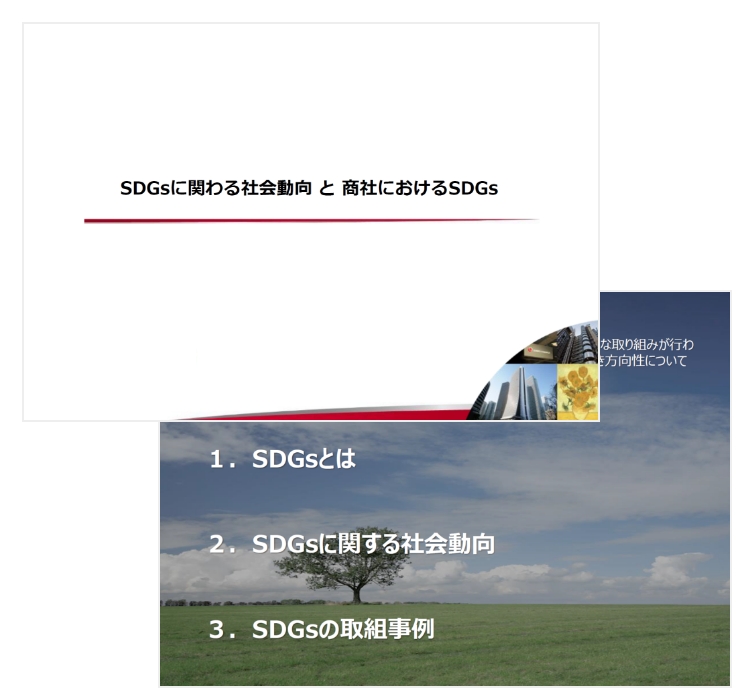
e-Learning for Employees
(1st Round: February 2021, 2nd Round: October 2021, Overseas: September 2021,3rd Round: November 2022)
All employees in Japan attended the 1st Round which was held with the objective of acquiring basic knowledge of SDGs and focused on the themes of “Why SDGs Now?” “What are SDGs?” “The Age When Non-performance Creates Risk” and “SDGs are Full of Appeal.”
The 2nd Round was conducted for the benefit of all employees based in Japan and overseas and featured the themes of “What are SDGs?” “Social Trends in SDGs,” and “Case Studies of SDGs Initiatives” and included the relationship between ESG and sustainability.
For the 3rd round, we have added topics that are more relevant to our activities, such as critical issues and the status of set KPIs. This e-learning communication will take place annually.
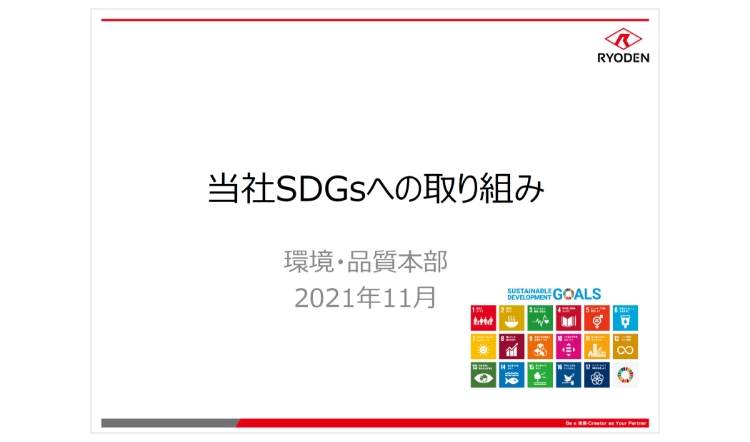
Orientation Meeting for Management About “Our Company’s SDGs Initiatives”
(November 2021)
The meeting shared information with management (section chiefs and above), including the relationship between the company’s management philosophy, guidelines for action, and SDGs, as well as the relationship between business activities and SDGs and the objectives of SDGs within business activities.
Its objective is to make business activities and SDGs contribution activities “relatable” and stimulate communication.
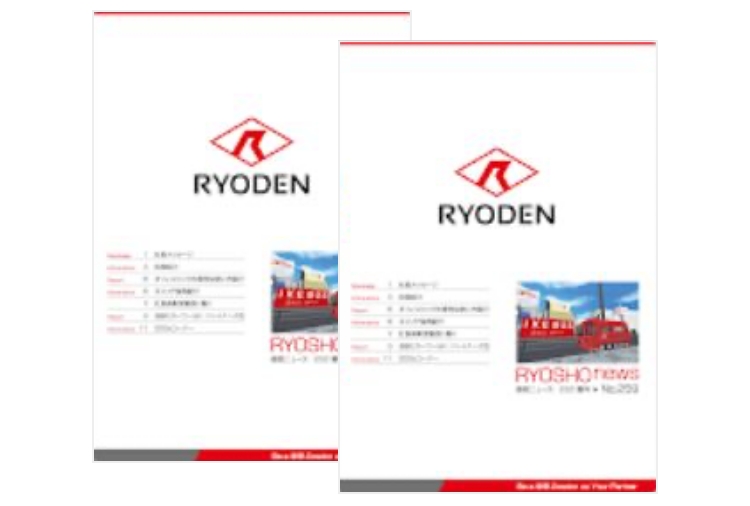
Promoting Understanding through Internal Communication
(November 2021)
We established the “SDGs Corner” in the company newsletter (RYODEN News) to appear four times a year starting in April 2021 and are providing information in installments.
In 2022 also, to promote understanding we published information a total of four times in conjunction with our regular publication.